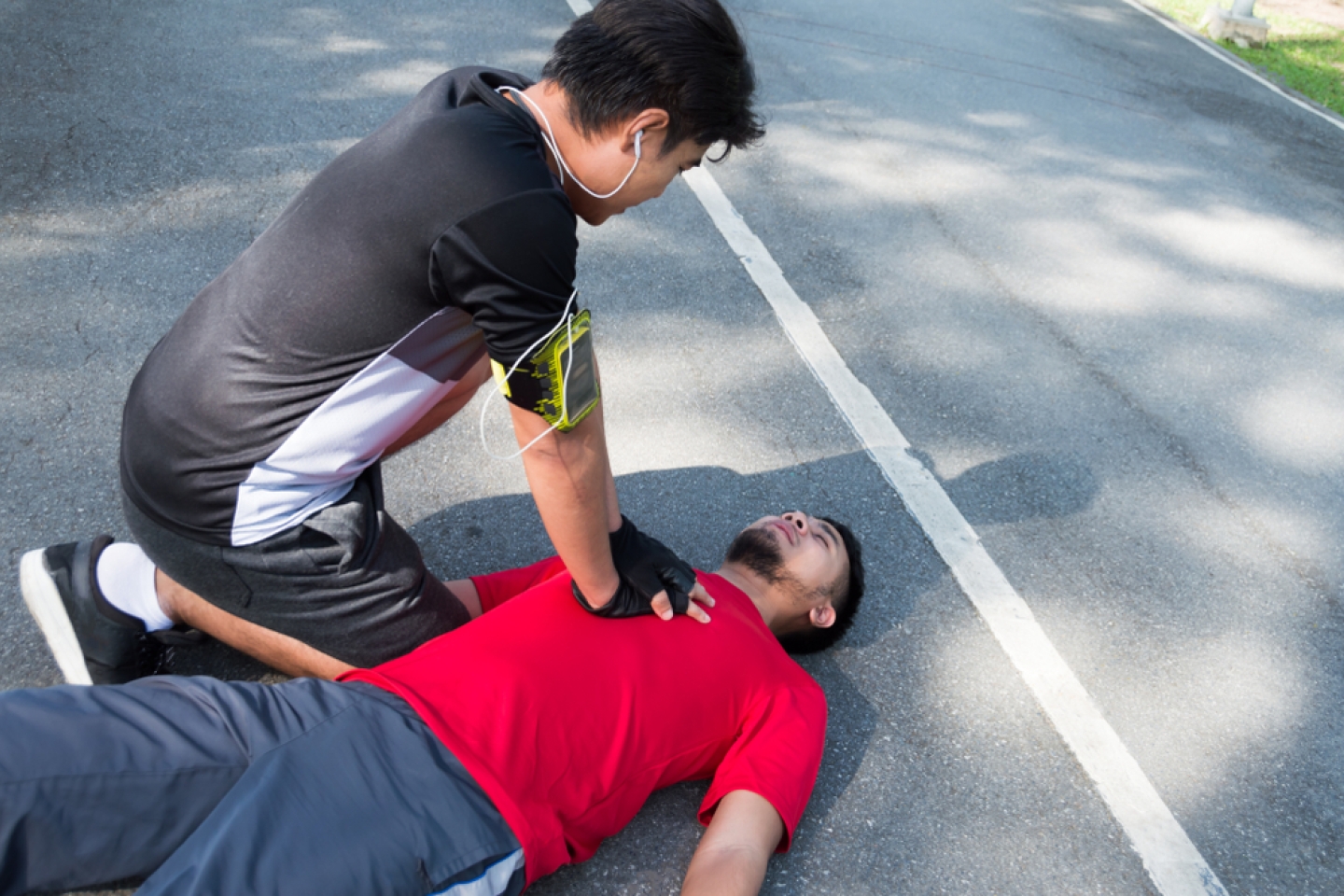
It was a story that gripped the entire country. On January 2, Buffalo Bills safety Damar Hamlin suddenly fell on the football field. He appeared to have fainted, but the young athlete had actually experienced cardiac arrest. He nearly didn’t make it. But thanks to quick action by a trainer and a team of medical professionals who performed CPR and used an automated external defibrillator (AED), Hamlin’s life was saved.
According to the doctor who treated him in the hospital, Hamlin had most likely suffered a rare occurrence on the field called commotio cordis, during which the chest takes a blow at a specific moment in the heart’s rhythm, leading to cardiac arrest.
Sudden cardiac arrest (SCA) is defined as a medical emergency in which the heart suddenly stops beating properly.
But you don’t need to be struck in the chest to experience SCA. “The most common cause of SCA is arrhythmia, or abnormal heart rhythm,” says Dr. Joseph Wang, an interventional cardiologist and Assistant Professor of Medicine in the Division of Cardiology at Weill Cornell Medicine.
Arrhythmias, such as ventricular tachycardia or fibrillation, don’t come out of the blue, he explains. These occur most often in people with:
During SCA, the affected individual can appear to have lost consciousness, causing the person to collapse abruptly on the spot, Dr. Wang explains. The sufferer will remain unresponsive, without a pulse and without breathing. Because the heart is no longer pumping blood, there is no blood pressure to maintain blood flow to vital organs, including the brain. If corrective measures aren't taken extremely quickly, the person will die.
A heart attack is a blockage of blood flow to the heart muscle, leading to injury. The classic feature of a heart attack is the sudden onset of crushing chest pain, but symptoms can vary greatly, ranging from severe shortness of breath to nausea, vomiting, and profuse sweating. An active or even a prior heart attack can predispose a person to SCA.
“Heart failure has to do with a poorly pumping heart or a “stiff” heart that doesn’t relax normally,” Dr. Wang says. These conditions are potential causes of sudden cardiac arrest.
Prompt cardiopulmonary resuscitation (CPR) should be performed to temporarily restore oxygenated blood flow to vital organs, especially the brain, and to avoid permanent damage. “The sooner CPR is initiated,” he says, “the greater the chances of survival.”
When available, an automated external defibrillator (AED) can be lifesaving. If a patient is in ventricular tachycardia or fibrillation, the device delivers an electric shock to the heart to restore normal heart rhythm. AEDs are often available in public spaces, including offices, schools, shopping malls, restaurants and airports. It may be worth familiarizing yourself with the location of the nearest AED in places you frequent, Dr. Wang suggests.
Cardiac catheterization is a minimally invasive procedure that allows us to visualize and correct any significant narrowing or blockage in the blood vessels of the heart. Generally, when we suspect a heart attack as the cause of cardiac arrest, we perform a cardiac catheterization as quickly as possible to restore blood flow to the heart muscles.
An implantable cardioverter-defibrillator (ICD) is generally recommended in survivors of SCA. Implanted under the skin, an ICD monitors for recurrence of life-threatening arrhythmias and effectively halts them when they happen. “It is like having an AED with you at all times. For people with known risk factors such as a history of cardiomyopathy leading to severely abnormal heart function, an ICD may be implanted for primary prevention to protect against SCA before ever having an actual incident,” says Dr. Wang.
People with a family history of SCA, especially if a family member passed away at a young age from unexplained causes, may benefit from screening. If you have such a history, discuss your eligibility for screening with your primary care physician or cardiologist.
“Athletes are a unique population,” Dr. Wang says, “and there are differences in guidelines regarding screening amongst various professional medical organizations. At a minimum, athletes should undergo a routine examination prior to participation in professional sports, which may include a screening EKG.
“However,” he adds, “in the general population without known cardiovascular disease, routine screening is not considered effective at identifying individuals at increased risk for SCA. For most people, we recommend focusing on healthy lifestyle choices, including a heart-healthy diet, regular exercise, smoking cessation, moderation in alcohol consumption and dealing with known risk factors like high blood pressure, high cholesterol and diabetes.”
To make an appointment with a cardiologist at Weill Cornell Medicine, please visit here to schedule.